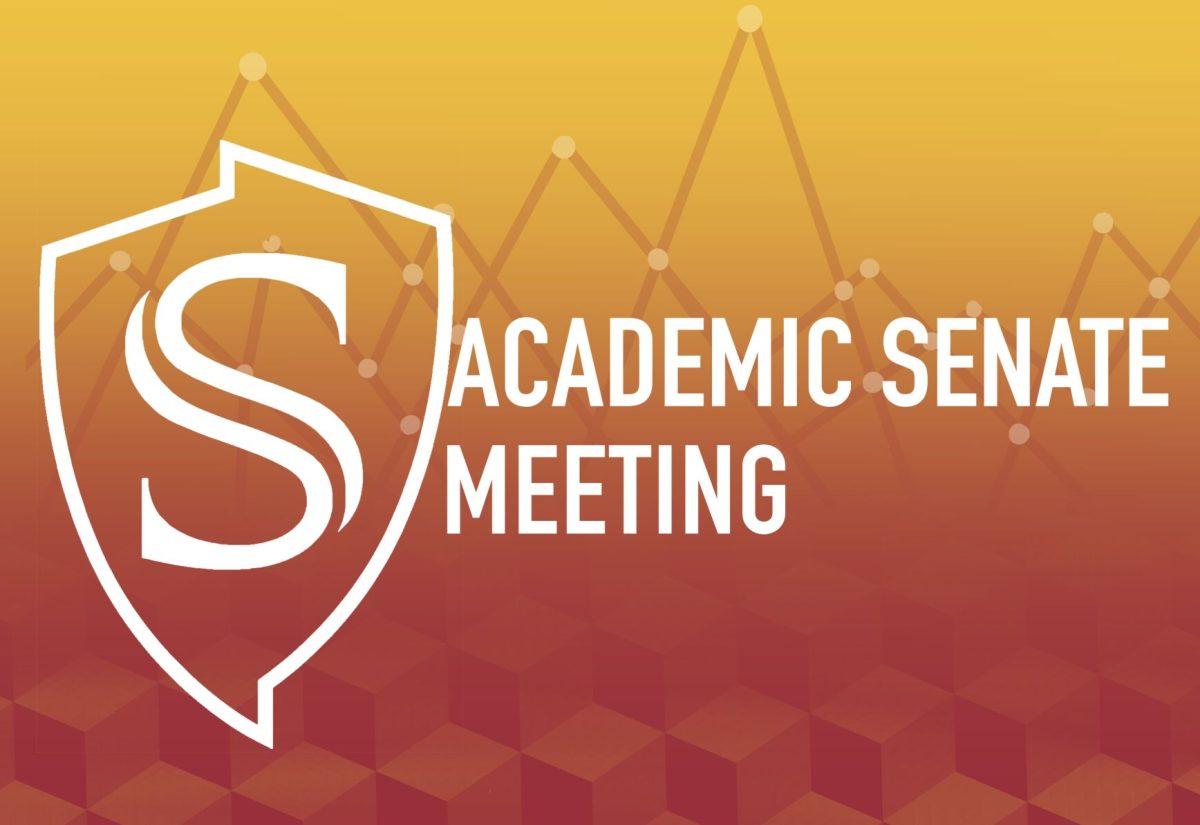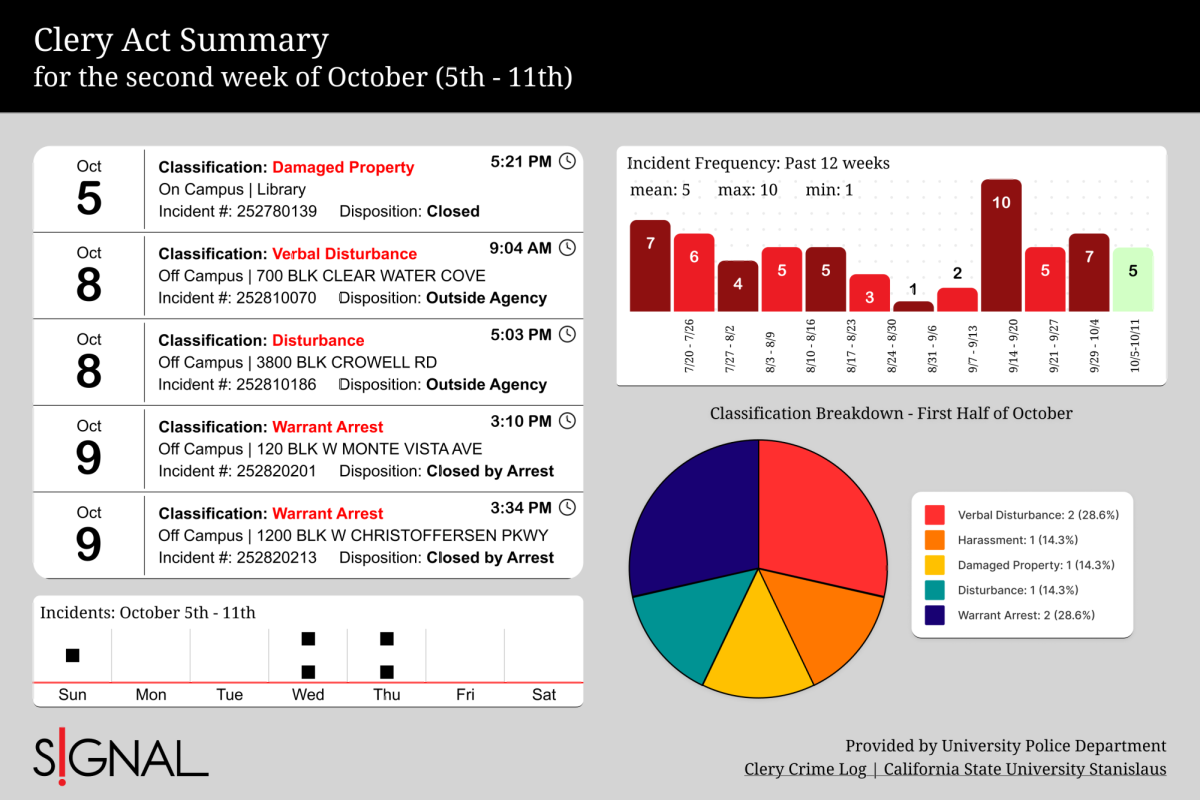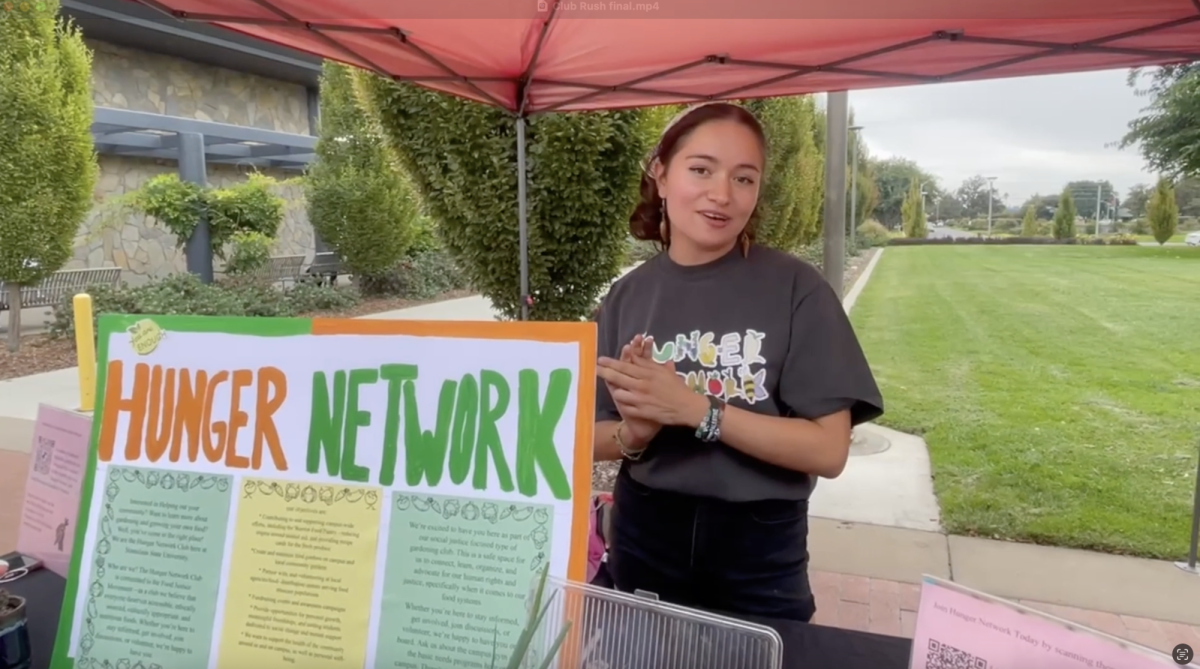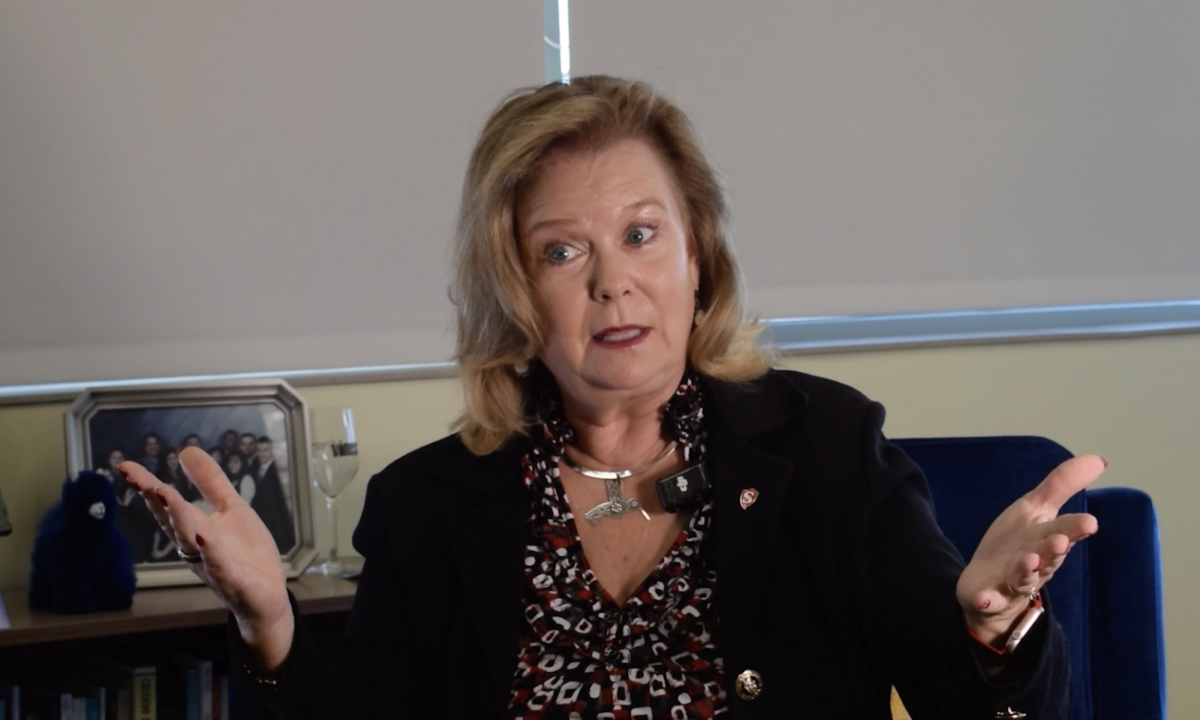CORRECTION: The subheader of this article previously read “CSU Stanislaus Student Medical Center Refuses to Provide Medical Abortions.” This was misleading, as the Medical Center has never refused treatment to an individual requesting these services. The section has been edited to reflect our current understanding of the issue.
No resolutions were passed in this Academic Senate session as only first reading items were on the agenda, but a number of important topics were discussed such as on-campus access to medical abortions, faculty salaries, the upcoming fiscal year’s budget priorities, and adding Juneteenth to the academic calendar as a work holiday.
Contention between Academic Senate Members and CSU Stanislaus Student Health Center Over Medical Abortions
On-campus medical abortion access was the immediate concern as Senator Ann Strahm opened by announcing that she discovered that every medical professional in the Student Health Center qualified to provide reproductive care is opting out of providing said care due to moral, ethical, or religious reasons.
Therefore, our Student Health Center is currently only providing abortion pills through telehealth appointments which will arrange having these pills shipped to their preferred location, including the Student Health Center itself, through a third-party service.
Our health care providers have also shared that pregnant students are often referred to an Obstetrician who can better address their needs. It is common for general practicioners and other medical services to refer patients to a specialist who is more equipped to assist with their condition.
CSU Stanislaus, along with a number of other CSUs, have policies in place which permit opting out of providing certain types of care on religious, ethical, or moral grounds.
Strahm also voiced her concern that LGBTQIA+ people are frequently discriminated against by medical professionals, and that if our staff is morally opposed to abortion access, that they might also have moral objections to LGBTQIA+ students.
Strahm recommended that the Senate put together an ad hoc committee to investigate what would be the best resolution to this issue.
Senator Brian Morsony suggested that the Senate could pass a resolution that requires the Student Health Center to hire at least one professional who will not refuse care, and that if the Health Center did not comply, they could pull their funding and hire entirely new staff.
“Shut it down, fire everyone, and hire all news services,” Morsony said to make his position clear on what should be done if the Health Center refuses to change their policy.
This is certain to be an on-going discussion and the Senate is in agreement that action should be taken soon.
Opportunities for Faculty to Apply for Range Elevation Upon Obtaining a Terminal Degree
FAC Chair Marina Gerson introduced a policy which would allow lecturers, and temporary librarian and counseling faculty unit employees, at any salary range to apply for range elevation upon obtaining a terminal degree.
The intent of the policy is to reward faculty for obtaining a higher education while they wait for tenure-track positions to open up.
“I just want to express my thanks to the FAC for developing this,” said CFA Stanislaus Chapter President, Senator David Colnic, “And this is a big step in the right direction.”
On April 24, 25, and 26, Colnic and other CFA members will be traveling to Sacramento for lobbying, showing that faculty are fighting for better wages, benefits, and increased funding for the university.
Boosting First-Year and Transfer Student Enrollment and Student Mental Health Key Concerns of New Budget Proposal
FBAC Chair Nancy Burroughs introduced a resolution to make future budgeting decisions prioritizing significantly increasing first-year and transfer student enrollment, providing support to students at all grade levels to retain already enrolled students, and increasing the number of tenure-track faculty appointed to Counseling and Psychological Services.
The goal of these budget decisions is to focus on students’ mental health and to make the university more appealing to working class and low-income students and prospective students.
“The most urgent priority on this campus, at this time, is to invest in personnel, programs, and strategies that enroll and retain a healthy, engaged student population,” Burroughs said.
Juneteenth to be Added to the Academic Calendar
Senator Dana Nakano introduced this resolution to the Senate, stating that the State of California has recognized Juneteenth as a paid holiday, and therefore the passing of this resolution is required by law.
However, Nakano made clear that they wrote the resolution to reflect the faculty’s support and enthusiasm for the inclusion of the holiday.
Nakano wrote about the months-long period it took for news of the Emancipation Proclamation to reach California and how, although Juneteenth originates in Texas’s emancipation of its slave population, the date represents the emancipation of slaves across the United States.
“I wanted to make sure that we were not just [passing the resolution] because we are required to do so, but also support the sentiment and celebration of this day,” Nakano said.
Juneteenth will only be observed this summer on June 19th, but Summer 2024 and 2025’s date will fall on a weekday and will therefore be a paid work holiday for students and faculty alike.









